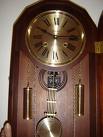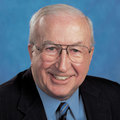 In the beginning of any endeavor there has to be some sort of self analysis. Can I take a photography course? Am I to old to go back to College? What will my life be like if I choose to sell the house and buy an RV? How will others perceive me if I decide to write and publish my memoirs? How can I change my career when this is the only way I ever made a living? Can I go into business for myself? Do I have what it takes to________fill in the blank?
In the beginning of any endeavor there has to be some sort of self analysis. Can I take a photography course? Am I to old to go back to College? What will my life be like if I choose to sell the house and buy an RV? How will others perceive me if I decide to write and publish my memoirs? How can I change my career when this is the only way I ever made a living? Can I go into business for myself? Do I have what it takes to________fill in the blank?
After the entire mind numbing analysis there is still doubt and unanswered questions. You need to bounce your idea off others. You ask advice from family, friends, colleagues, mentors, professionals, and associates. What do they say about your dream?
In the 1600’s Christian Huygens invented the pendulum clock. He displayed his clocks on the walls of a room, where each pendulum swung independently. Huygens discovered that, after a while, all the pendula began to swing in precise, synchronized rhythm. He theorized that the clocks’ sound waves entered the walls, which responded with their own vibrations, there by bringing the clocks into a single rhythm. Huygens’ theory is now a well excepted law of physics, known as “sympathetic resonance.”
independently. Huygens discovered that, after a while, all the pendula began to swing in precise, synchronized rhythm. He theorized that the clocks’ sound waves entered the walls, which responded with their own vibrations, there by bringing the clocks into a single rhythm. Huygens’ theory is now a well excepted law of physics, known as “sympathetic resonance.”
As you begin to dream, your dreams rhythm will be affected just like the response of the walls to all the other sound waves in the room. So do your dreaming in the company of “clocks” whose rhythm you want to emulate.
As a child, when you wanted something, you knew which adult to ask, knowing who would be more supportive of your goal. As a student you knew which teacher to approach. Even now, you know which supervisor, boss or colleague will create the vibrations most harmonious to your own.
If you are thinking about fulfilling your dream, hang around people that are working toward theirs. Don’t try to work amidst the din of naysayers and negative nellies. Don’t mingle with the “can not’s” and “non doers.” Their vibrations, like the walls of the clocks, will cause you to swing in sync with them. They will deter you from your dream.
and negative nellies. Don’t mingle with the “can not’s” and “non doers.” Their vibrations, like the walls of the clocks, will cause you to swing in sync with them. They will deter you from your dream.
The vibrations of such naysayers are predictable. You must surround your self with people who understand dreams. So, if you decide to run that marathon, talk with fellow joggers. If you insist on going into business for your self, speak with entrepreneurs. If you choose to travel the world, reach out to those who have done it before you. Stay away from dream killers and embed yourself in sympathetic resonance.
How do you handle naysayers? Who are your positive reinforcements? Please write back, I would love to know.
 According to The Harvard Business Review when it comes to people and retention, emotion trumps logic, always has, always will. Human beings are emotional creatures. People will rely on feelings for their most memorable experiences. That is why I am amazed to hear many business introductions so uninspired. Their elevator speech comes off like I have just been cornered by Joe Friday “Just the facts sir”. No emotion, no excitement, verbatim job description and an overly rehearsed something, something. See, I forgot what it was already.
According to The Harvard Business Review when it comes to people and retention, emotion trumps logic, always has, always will. Human beings are emotional creatures. People will rely on feelings for their most memorable experiences. That is why I am amazed to hear many business introductions so uninspired. Their elevator speech comes off like I have just been cornered by Joe Friday “Just the facts sir”. No emotion, no excitement, verbatim job description and an overly rehearsed something, something. See, I forgot what it was already. headline. “I save lives” (medical field), “I talk to the world” (telecommunications), “I see dead people” (undertaker). What ever it is you do, put it on a grand scale right at the beginning. Follow that with awards you have won. Mention a well known person that recommends you. Do you have big named clients? Throw ‘em in there. Save the minute details for the interview
headline. “I save lives” (medical field), “I talk to the world” (telecommunications), “I see dead people” (undertaker). What ever it is you do, put it on a grand scale right at the beginning. Follow that with awards you have won. Mention a well known person that recommends you. Do you have big named clients? Throw ‘em in there. Save the minute details for the interview  rational statements bounce off. You have 30 seconds to wow your listener. Use emotion, it beats logic every time.
rational statements bounce off. You have 30 seconds to wow your listener. Use emotion, it beats logic every time. Often in history people can’t comprehend a new invention or cultural upheaval. Most folks need to compare the new to the old to get some kind of semblance of understanding. When the Ford Motor Company started selling cars, people couldn’t relate to the contraption, so they marketed automobiles as horseless carriages because folks could relate to a horse and buggy but not a motor run machine that wasn’t on tracks and required gasoline. On a social level the youth uproar of the 1960’s was quantified as the American–French Revolution by the press and say-so establishment of the time. The mainstream just couldn’t understand what was happening, hence all the social turmoil.
Often in history people can’t comprehend a new invention or cultural upheaval. Most folks need to compare the new to the old to get some kind of semblance of understanding. When the Ford Motor Company started selling cars, people couldn’t relate to the contraption, so they marketed automobiles as horseless carriages because folks could relate to a horse and buggy but not a motor run machine that wasn’t on tracks and required gasoline. On a social level the youth uproar of the 1960’s was quantified as the American–French Revolution by the press and say-so establishment of the time. The mainstream just couldn’t understand what was happening, hence all the social turmoil. full of the information the title suggests. I came across a chapter about J. D. Power and I recognized how his life, personal brand and work contrast to today’s Social Media phenomenon. I also like to compare the new to the old and couldn’t put my finger on how to do so with the new media. I can already see what social media does with information, opinion news and entertainment. How can this new medium be used effectively in business marketing, promotions and advertising?
full of the information the title suggests. I came across a chapter about J. D. Power and I recognized how his life, personal brand and work contrast to today’s Social Media phenomenon. I also like to compare the new to the old and couldn’t put my finger on how to do so with the new media. I can already see what social media does with information, opinion news and entertainment. How can this new medium be used effectively in business marketing, promotions and advertising? Power founded his own marketing company,
Power founded his own marketing company,  Contacts. Word of mouth advertising is the best direction to a purchase. Very few companies understand this new communication. If someone has a complaint about a product or had bad service and relayed that back to their social media connections, it could effect the companies’ public relations drastically. Worse, if it was a complaint, that information could impede profits and the company would never know why. If the complaint came from a particularly savvy on-line personality, the information could reach millions of people by the end of the week.
Contacts. Word of mouth advertising is the best direction to a purchase. Very few companies understand this new communication. If someone has a complaint about a product or had bad service and relayed that back to their social media connections, it could effect the companies’ public relations drastically. Worse, if it was a complaint, that information could impede profits and the company would never know why. If the complaint came from a particularly savvy on-line personality, the information could reach millions of people by the end of the week. Have you ever poked a hole through someone’s argument and then tore it open on a technicality?
Have you ever poked a hole through someone’s argument and then tore it open on a technicality? Whittier. Johnson went to Southwest Texas State Teachers’ College, now Texas State University-San Marcos. A fine school I’m sure, but not Ivy League. Harry Truman was a haberdasher and never even got a college degree.” My Professor said I was getting romantical with the semantical and missing the point. That phrase has stuck with me ever since.
Whittier. Johnson went to Southwest Texas State Teachers’ College, now Texas State University-San Marcos. A fine school I’m sure, but not Ivy League. Harry Truman was a haberdasher and never even got a college degree.” My Professor said I was getting romantical with the semantical and missing the point. That phrase has stuck with me ever since. odd subjective term. Suppose you don’t have strong communication skills and respond accordingly. That response in it self is communicative. Another term I’m having a problem with is self motivator/self starter. “Well, Ms. Jones I believe I’ll be perfect for this position because I’m a self-motivated person. When I wake up, I get up on my own without having to be told. If memory serves me correctly I’ve been feeding myself before starvation kicks in for some time now.”
odd subjective term. Suppose you don’t have strong communication skills and respond accordingly. That response in it self is communicative. Another term I’m having a problem with is self motivator/self starter. “Well, Ms. Jones I believe I’ll be perfect for this position because I’m a self-motivated person. When I wake up, I get up on my own without having to be told. If memory serves me correctly I’ve been feeding myself before starvation kicks in for some time now.”

 the carving of the Erie Canal and a great deal more. I have lived here for almost 7 years and had just been to the Jazz Fest, discovered a wonderful and varied artistic community. Since being liberated I’ve been to the Amerks (Rochester’s AHL hockey team) and Red Wings (AAA minor league baseball team) games, free concerts, theater, an air show, conventions and numerous community exposés. Rochester is a wonderful place to raise children with many family activities rain or shine. Downtown Rochester is an underestimated vivacious community of artists, professionals, businesses, restaurants and nightlife.
the carving of the Erie Canal and a great deal more. I have lived here for almost 7 years and had just been to the Jazz Fest, discovered a wonderful and varied artistic community. Since being liberated I’ve been to the Amerks (Rochester’s AHL hockey team) and Red Wings (AAA minor league baseball team) games, free concerts, theater, an air show, conventions and numerous community exposés. Rochester is a wonderful place to raise children with many family activities rain or shine. Downtown Rochester is an underestimated vivacious community of artists, professionals, businesses, restaurants and nightlife. This um..ah post is erh..ah intended to umm.. help ahh.. um you umm articulate your ahh erh..umm.. speaking voice.
This um..ah post is erh..ah intended to umm.. help ahh.. um you umm articulate your ahh erh..umm.. speaking voice.
 If there is anything that can bring you out of yourself, something that can show and prove that there is a bit more; volunteering is the way. Simply put, the act of giving makes you feel good. On holidays and birthdays when the recipient of your present is about to open their gift, that’s when you pay particular attention. Your pulse moves up, as their eyes widen in excitement while they tear open their gift. Its fun, it’s exciting to see someone acquire what they need or want due to your thoughtful efforts. Volunteering for the Rochester Red Cross is that and much more. There is no better gift then the gift of giving yourself, your time, your energy, and your kind efforts.
If there is anything that can bring you out of yourself, something that can show and prove that there is a bit more; volunteering is the way. Simply put, the act of giving makes you feel good. On holidays and birthdays when the recipient of your present is about to open their gift, that’s when you pay particular attention. Your pulse moves up, as their eyes widen in excitement while they tear open their gift. Its fun, it’s exciting to see someone acquire what they need or want due to your thoughtful efforts. Volunteering for the Rochester Red Cross is that and much more. There is no better gift then the gift of giving yourself, your time, your energy, and your kind efforts. Volunteer today 585-241-4490
Volunteer today 585-241-4490  THE NUANCE OF THE WHAT’S UP NOD
THE NUANCE OF THE WHAT’S UP NOD![453785636_c6082ab17a_m[1] 453785636_c6082ab17a_m[1]](https://bgriffin04.files.wordpress.com/2009/05/453785636_c6082ab17a_m1.jpg?w=138&h=150) bert Fonzarelli’s welcoming gestures.
bert Fonzarelli’s welcoming gestures.